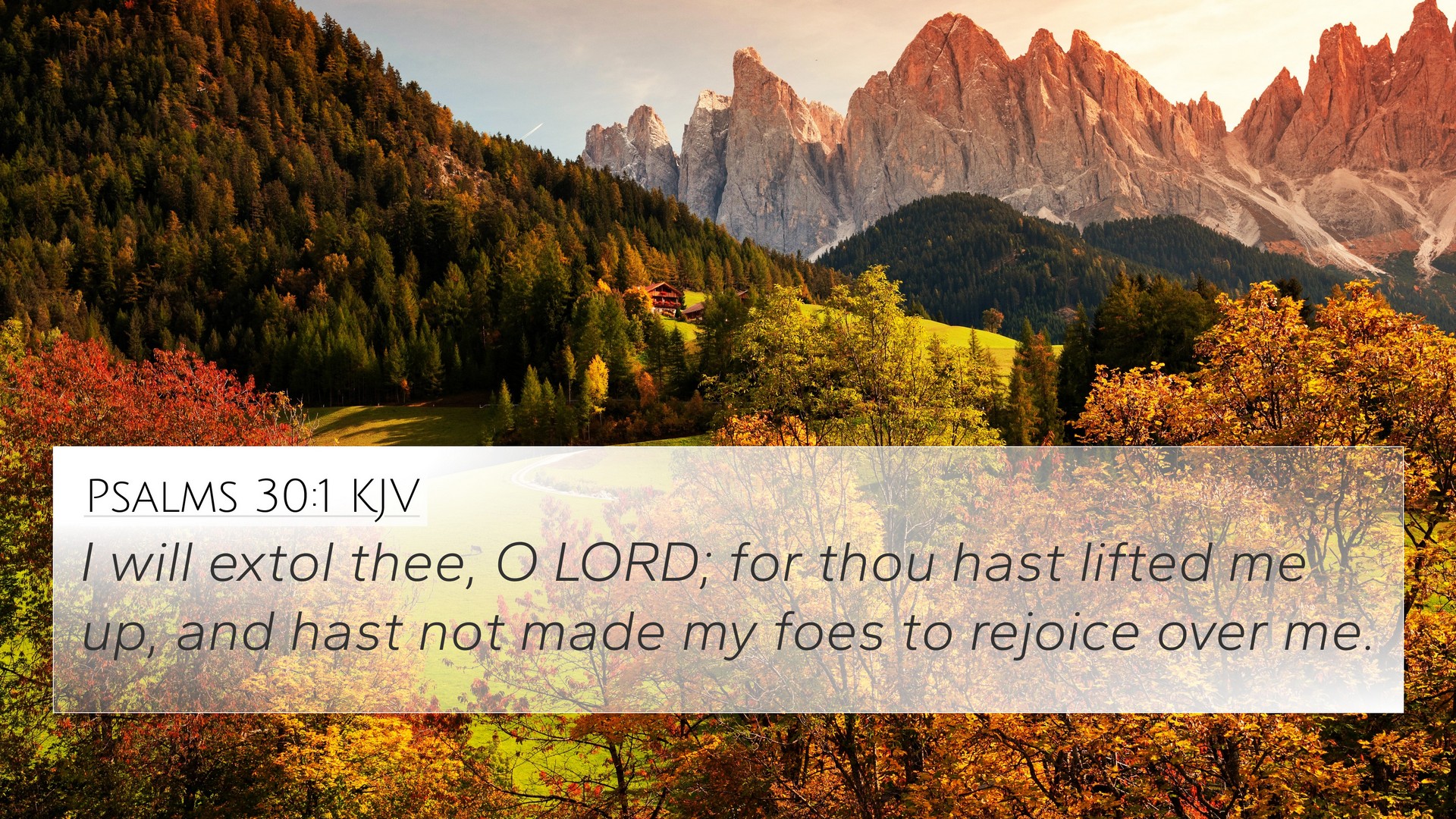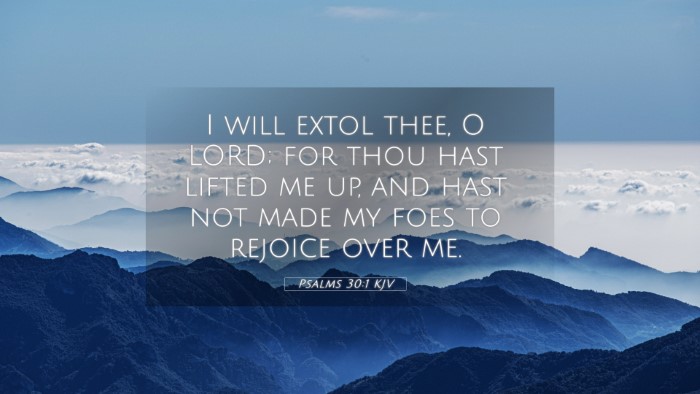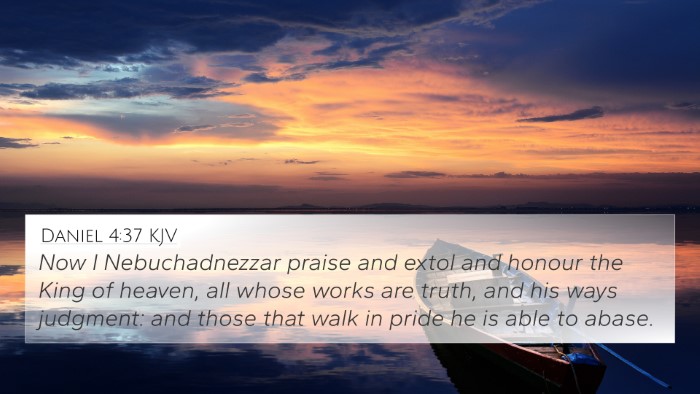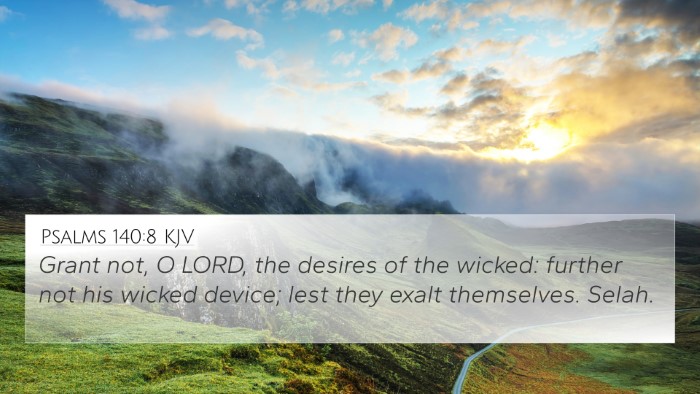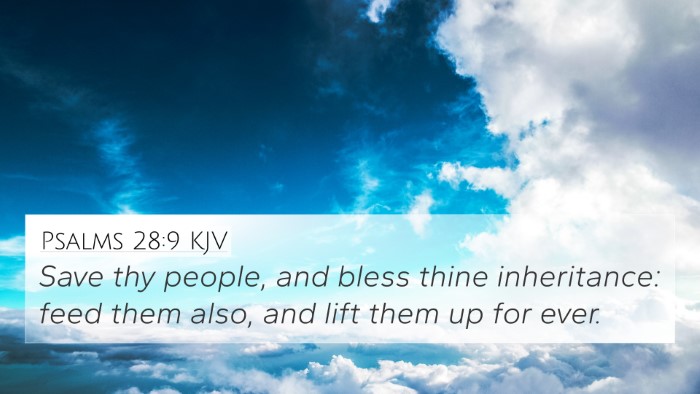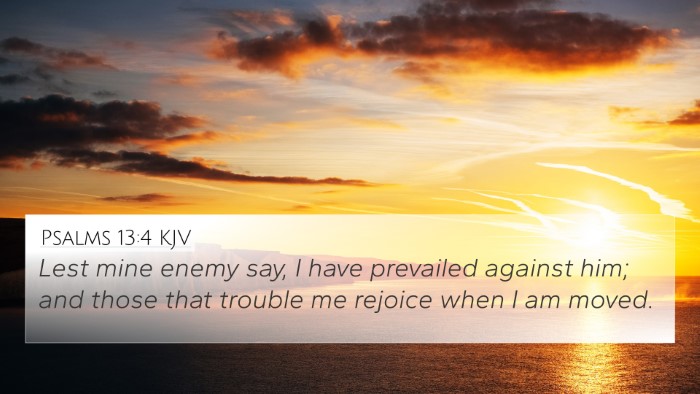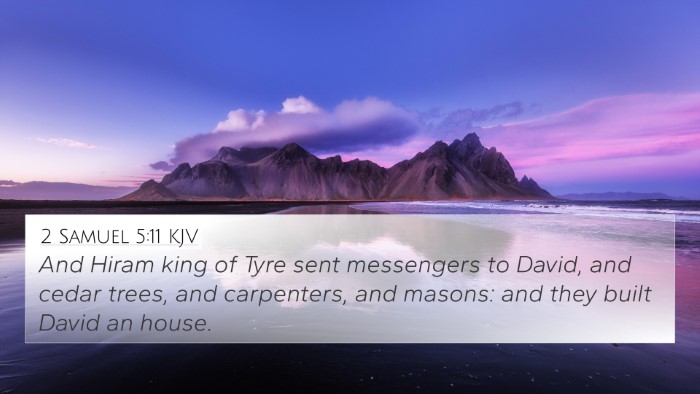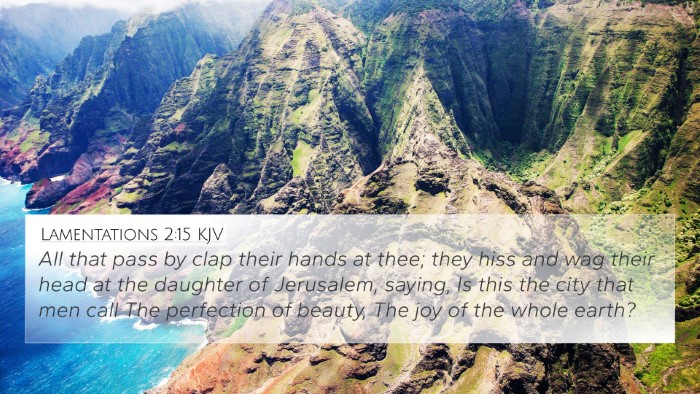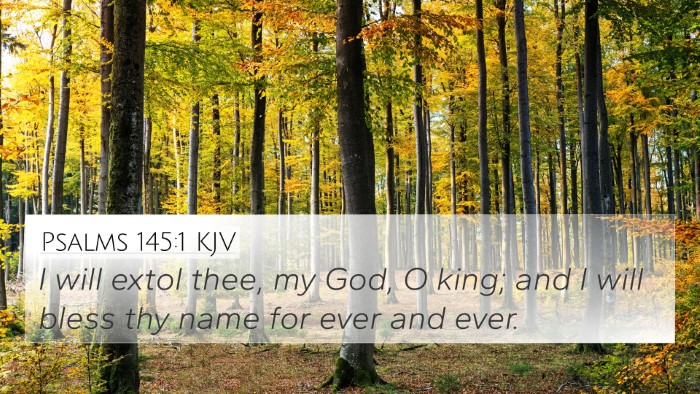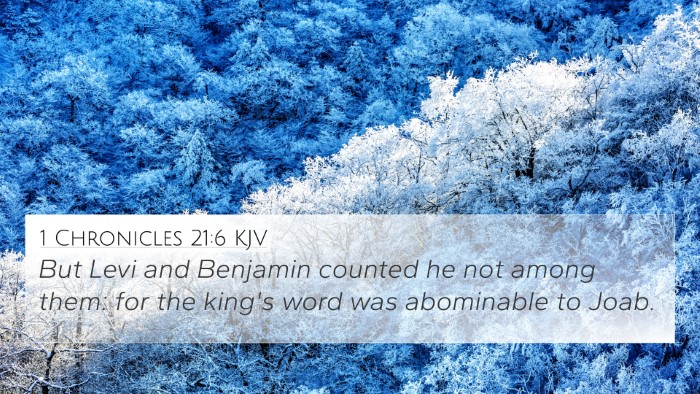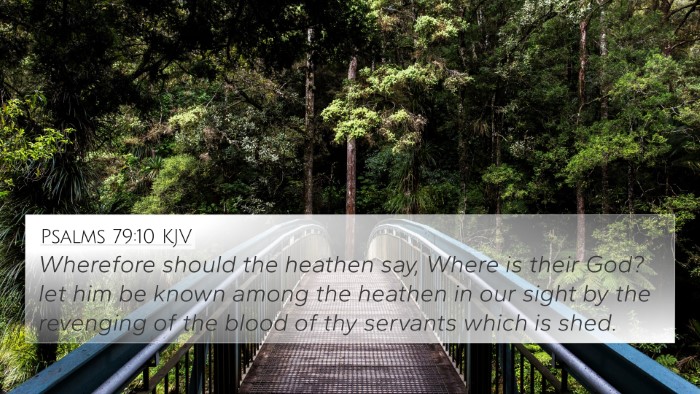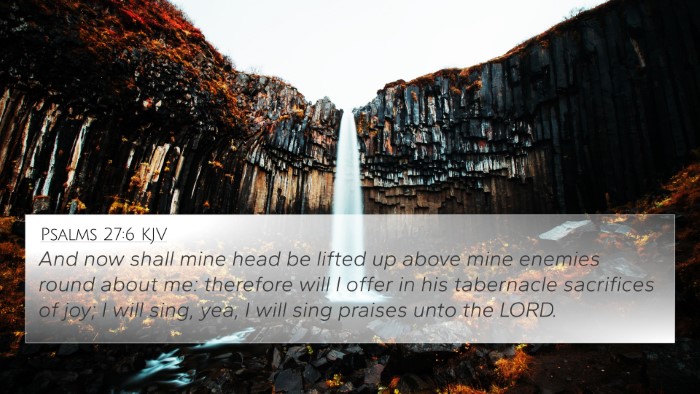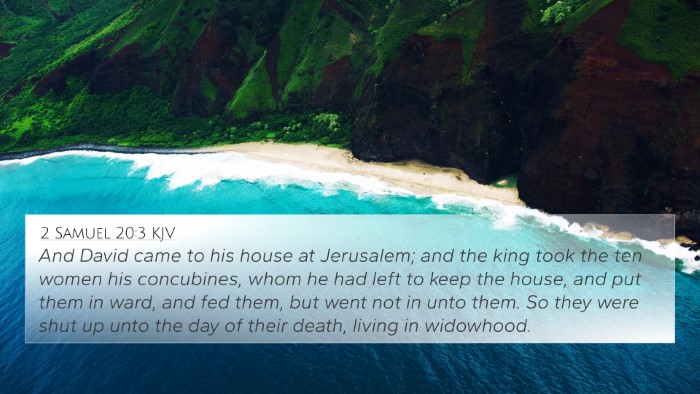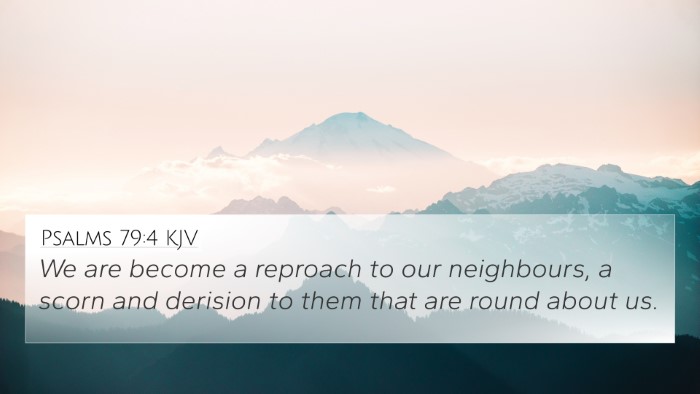Psalms 30:1 - A Comprehensive Analysis
Verse: "I will extol thee, O Lord; for thou hast lifted me up, and hast not made my foes to rejoice over me."
Meaning and Interpretation
Psalms 30:1 expresses a deep sense of gratitude and recognition of God's salvation and protection. The psalmist is acknowledging God's intervention during a time of distress and the elevation from a position of trouble. This verse is a call to worship, highlighting the theme of divine deliverance.
Key Themes
- Thanksgiving and Praise: The act of extolling or praising God is central to the human response to divine intervention.
- Divine Elevation: The phrase “thou hast lifted me up” implies spiritual and personal restoration.
- Protection from Enemies: The assurance that God has not allowed adversaries to triumph signifies ultimate security in faith.
Commentary Insights
Matthew Henry’s Commentary
Matthew Henry emphasizes the importance of recognizing God's hand in our lives, particularly in times of distress. He notes that the psalmist’s expression of gratitude acts as a reminder to the faithful of God's unwavering protection.
Albert Barnes’ Notes
Albert Barnes highlights that this verse reflects a joyful resolution to praise God, outlining the transformative power of divine deliverance. Barnes suggests that the psalmist recalls specific instances of personal trouble from which God has rescued him.
Adam Clarke’s Commentary
Adam Clarke points out that the psalm emphasizes both the spiritual and physical aspects of deliverance. Clarke discusses how the psalmist's acknowledgment of God's mercy serves as a precedent for believers today to express their own experiences of divine aid.
Bible Verse Cross-References
This verse connects with several other biblical passages that underscore similar themes of deliverance and praise. Below are some notable cross-references:
- 1 Samuel 2:1: Hannah’s song of praise after God's intervention.
- Psalms 40:2: “He brought me up also out of an horrible pit...” - a reflection on divine lifting.
- 2 Samuel 22:27: “With the pure thou wilt show thyself pure...” - God’s role in deliverance.
- Isaiah 61:3: “...to give unto them beauty for ashes...” - transformation and restoration.
- Romans 8:31: “If God be for us, who can be against us?” - assurance of God’s support against foes.
- James 4:10: “Humble yourselves in the sight of the Lord, and he shall lift you up.” - a parallel theme of elevation through humility.
- Revelation 21:4: “...God shall wipe away all tears...” - ultimate promise of restoration and deliverance.
Thematic Bible Verse Connections
By utilizing tools for Bible cross-referencing, the connections between verses can be better understood. The verses highlighted above can be linked together to form a coherent narrative about God’s protection and deliverance throughout Scripture, enlightening our understanding of similar themes.
Secondary Insights
- Tools for Bible Cross-Referencing: A Bible concordance and cross-reference guide can aid in identifying connections.
- How to Use Bible Cross-References: These tools enhance Bible study by providing a broader context.
- Bible Chain References: Following thematic chains can reveal deeper insights into scripture pairings.
User Intent Insights
For those seeking to explore connections, the verse in Psalms 30:1 can lead to questions such as:
- What verses are related to Psalms 30:1?
- How do Psalms 30:1 and Romans 8:31 connect in terms of divine support?
- What are the similarities between Psalms 30 and other praise Psalms?
Conclusion
Psalms 30:1 serves as a powerful declaration of faith and thankfulness, reminding us of God's unwavering support during times of distress. Engaging with this verse through a cross-referencing approach allows for a richer understanding of the interconnectedness found within the Scriptures. The thematic connections between different Bible passages enrich the believer's journey, offering hope and assurance through God’s Word.
